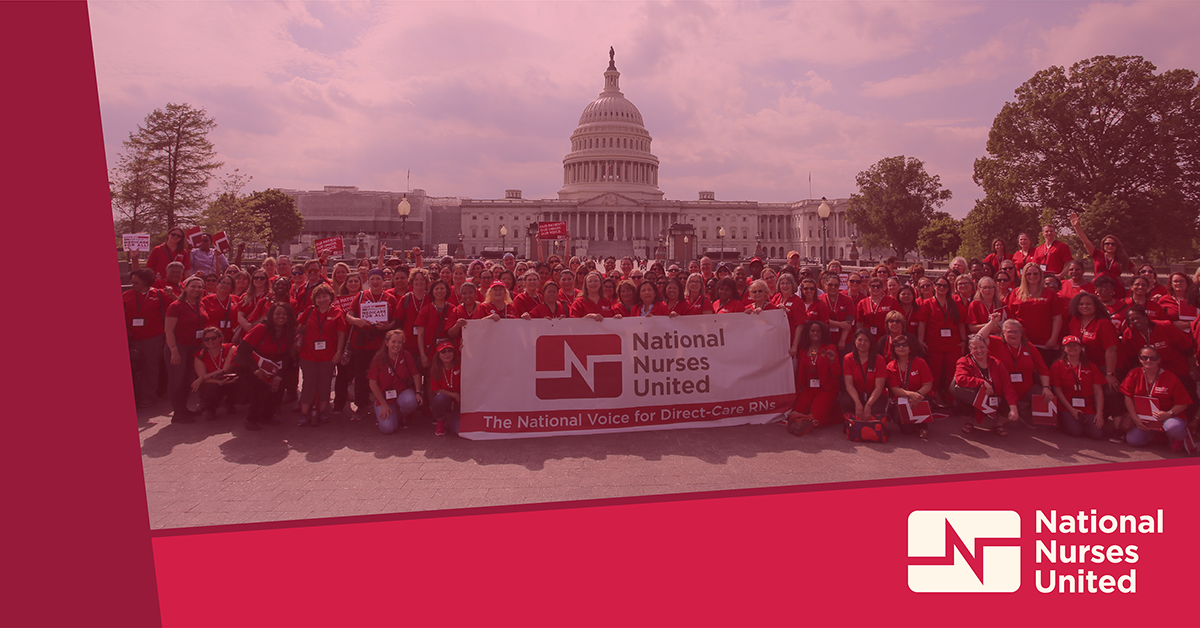Press Release
Increased RSV infections are not due to “immunity debt,” but failure to protect public health

Blaming the rise in pediatric respiratory viruses on stay-at-home orders is a flawed conjecture, not based on science
The increases in pediatric respiratory syncytial virus (RSV) infections and related hospitalizations are not due to an “immunity debt” created by masking and stay-at-home orders issued during the Covid-19 pandemic. So-called immunity debt is a flawed conjecture that is not based on science.
“RSV and other respiratory viruses are significantly more severe this year due to a complete abandonment of public health measures that have helped protect the public from Covid-19 and other respiratory illnesses,” said Deborah Burger, RN and a president of National Nurses United (NNU). “The lack of public health protections and the impact of Covid infections, reinfections, and long Covid are likely contributing to the significant impact of RSV on young children and infants. Promoting the idea of ‘immunity debt’ is not only unscientific, it is harmful to the public’s health.”
Articles stating that children have not been exposed to RSV since the beginning of the Covid-19 pandemic due to stay-at-home orders are inaccurate. Many children were already exposed to and infected with RSV in 2021. In fact, the positivity rates for RSV were higher in 2021 than they are now in the United States. Additionally, RSV infections only provide partial immunity, and individuals remain susceptible to repeat infections throughout their lives.
Unfortunately, the CDC appears to be promoting this idea of “immunity debt” as the reason behind the current surge in respiratory viruses and hospitalization, especially among children. During the CDC’s Nov. 4 media advisory, the agency explicitly stated that because of a lack of immunity, “these children, if you will, need to become infected to move forward because it’s a disease [RSV] very common in children.” However, claiming that children need to become infected to clear their “immunity debt” provides little benefit to children, ignores individual risks for severe infections (particularly among immunocompromised children), and disregards the science about the virus.
“There is no evidence that the rise in pediatric RSV is due to a so-called immunity debt,” said Burger. “Our immune systems are constantly working to protect us from infection and disease, even in the absence of exposure to pathogens. But some infections, such as Covid, can disrupt the immune system, even with an initially mild or asymptomatic case. We know that children and adolescents can also develop long Covid.”
For example, a study published in Nature Immunology in January 2022, found that immunological dysfunction can persist for more than eight months following a mild to moderate Covid infection. In April 2022, the American Academy of Pediatrics noted that at least 75 percent of children and adolescents have had at least one Covid infection, nearly one-third of which occurred during the Omicron surge last winter.
“To protect the public’s health, we need a multilayered approach to infection control,” said Burger. “Since the beginning of the pandemic, National Nurses United has been advocating for multiple levels of infection control, including masking, social distancing, vaccination, testing, contract tracing, staying home when sick, and paid sick leave for workers.”
“We know that we are not safe until everyone is safe,” continued Burger. “We continue to fight for the strongest protections for health care and other frontline workers. We need the Occupational Safety and Health Administration to issue a permanent Covid standard to protect nurses and other health care workers.”
National Nurses United is the largest and fastest-growing union and professional association of registered nurses in the United States with nearly 225,000 members nationwide.